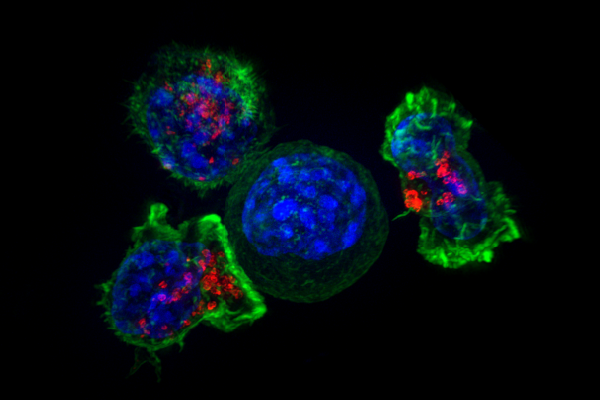Study shows recurrent alterations in prostate cancer in Chinese patients differ from those in the west


A very large team of researchers affiliated with institutions across China (and several from Washington University School of Medicine in the U.S.) has found recurrent alterations in prostate cancer in Chinese patients that differ from patients in the west. In their paper published in the journal Nature, the group describes conducting transcriptomic, epigenomic and genomic analyses of prostate cancer tissue in patients in China and compared what they found with data from cancer patients in the west—and what they discovered as a result.
As the researchers note, much research has been conducted to better understand the nature of prostate cancer—it is the second-most common type of cancer in men worldwide after lung cancer. But they also note that most such research has been done with cancer patients in the West. Curious as to whether there might be any differences between cancers in western men and those of men in China, they embarked on an ambitious study of prostate cancer in Chinese patients.
The work involved collecting tumor tissue samples from 208 patients who had been treated for prostate cancer with radical prostatectomy. For various reasons, some of the samples could not be used for their research—they wound up using just 177. By analyzing the tissue, the researchers found FOXA1 gene mutations in 41 percent of the tumors they studied. They also found recurrent CHD1 and ZNF292 deletions in approximately 18 percent of the tumors. They then discovered that both percentages were different compared to 2,554 prostate cancers found in patients in other parts of the world, which included 12 western countries. Prior research had also shown that approximately 50 percent of prostate tumors in the West have ETS fusions—a higher percentage than the team saw in Chinese patients.
Source: Read Full Article